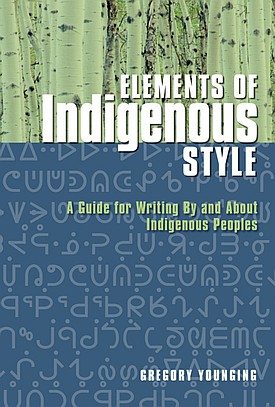 One of our most important tools for serving others: our choice of words.
One of our most important tools for serving others: our choice of words.
Two vital resources of Truth and Reconciliation are: the two page Indigenous Tourism Media Style Guide by Ryan Rogers and the 168 page book Elements of Indigenous Style: A Guide for Writing By and About Indigenous Peoples by Gregory Younging.
Both offer guidance in rejecting the language of colonialism. Both ask that we:
Respect Autonomy
We are asked to avoid phrasing that suggests Indigenous Peoples are property to be owned and cannot take action on their own behalf. Rather than writing that "Canada's Indigenous Peoples and their advocates and communities were given an agreement," we should write: "Indigenous Peoples, advocates, and communities reached an agreement with Canada."
Respect Indigneous Peoples Here and Now
We are taught that English language should always convey that Indigenous Peoples exist as a current and ongoing civilization and culture. We should refer to the practices, beliefs and continued existence of Indigenous Peoples in the present tense as opposed to past. Indigenous Peoples are not a historical curiosity. They are here with us right now.
Respect Intellectual Property
We are asked to see Indigenous Peoples' Oral Traditions and Traditional Knowledge as copyrighted works. Oral-based systems of collective knowledge are a vital and personal part of Indigenous culture and should never be reproduced without permission, agreed compensation and full credit.
Respect Indigenous Style
We are asked to set aside Canadian Press style whenever it is conflict with Elements of Indigenous Style. We are asked to respect Indigenous Style and to learn to use words are respectful and appropriate towards Indigenous Peoples.
Ryan's guide and Younging's book also offer advice on presenting history, collaborating with Indigenous Peoples, further guidance on avoiding biased language, and case studies with best practices.
We encourage you to read the online Indigenous Tourism Media Style Guide and to buy a copy of Elements of Indigenous Style through the publisher's page. You can also find it at your local library.
We encourage you to always choose words that respect each person as a unique expression of God's love, each deserving of respect and dignity.
